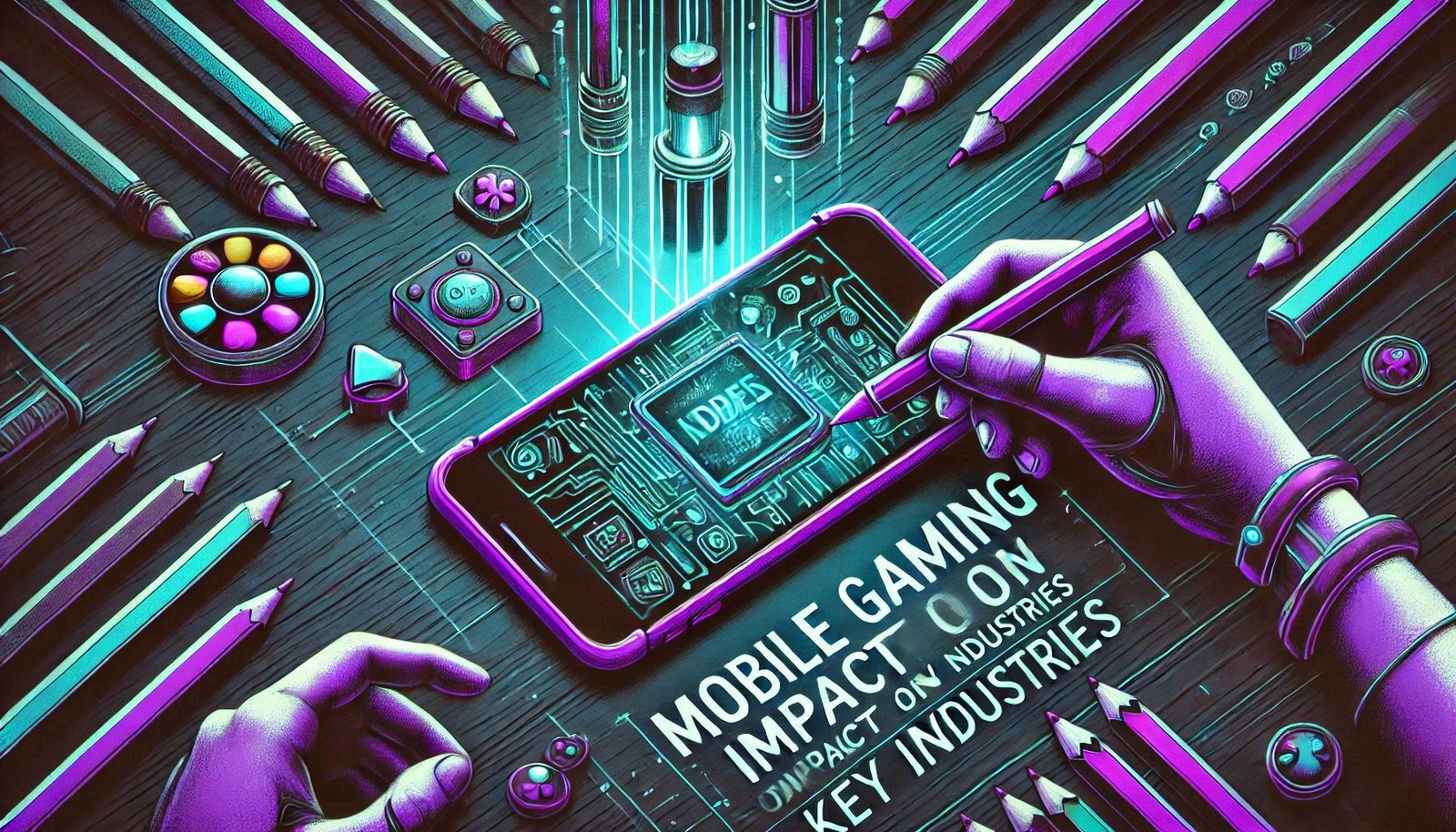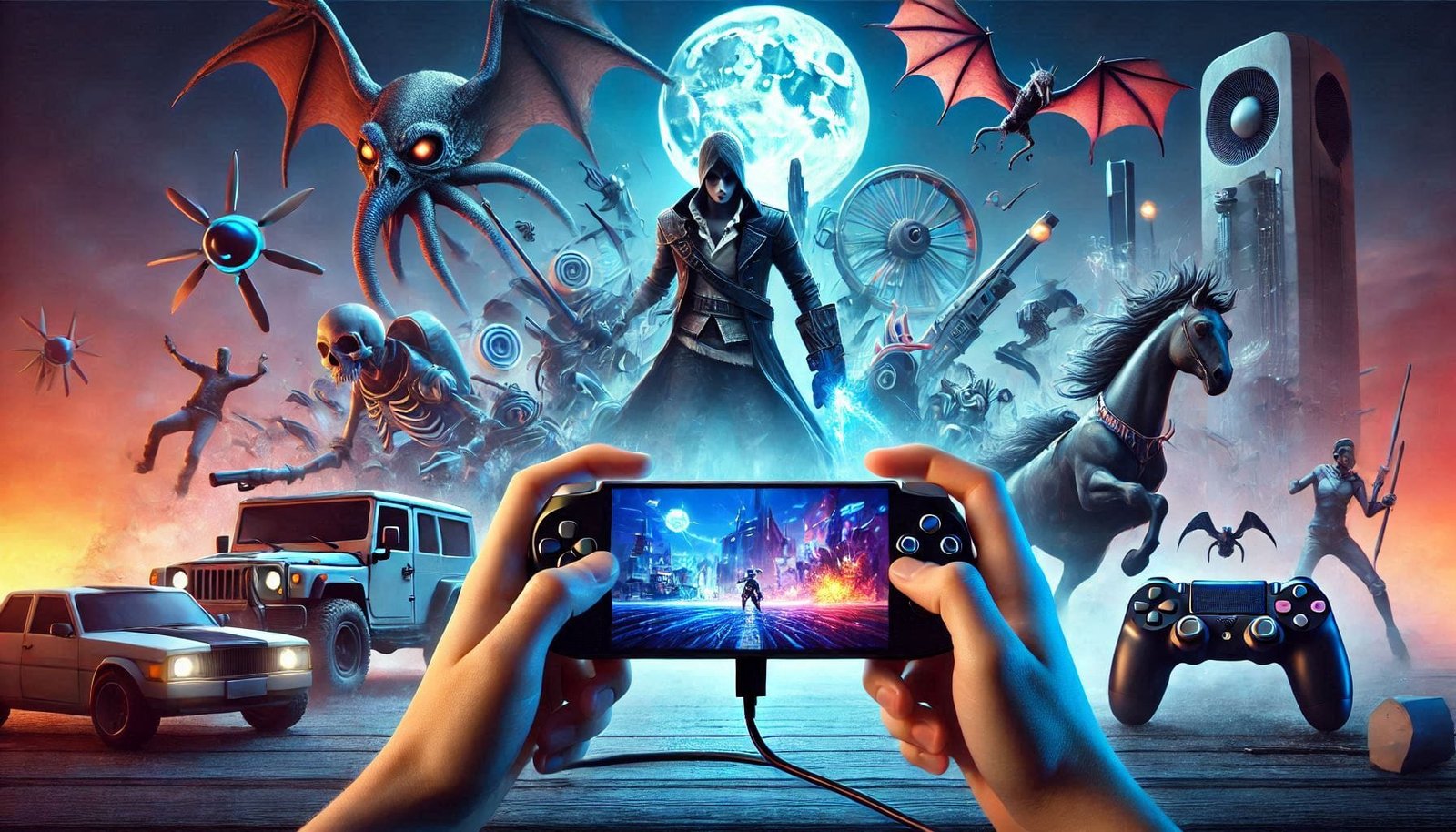Mobile Gaming Overview — Is it Heat Death for Consoles or 100% Better Gaming?
Hello everyone, so let us discuss mobile gaming, shall we? I mean come on, did you see how much better it got? No more kiddish puzzle games, huh? It seems like nearly everyone has a phone these days, and odds are they’re playing a game on it. From massive RPGs to frenetic battle royales, mobile gaming has gone nuts, and is changing everything.
Kind of wild to think about, huh? I recall when mobile games were tiny, pixelated time-wasters. Now, we have games better than some of the shit on your Xbox or PlayStation! But that brings us to the key question — is this the death of consoles? Is mobile changing the game completely, or are we just adding another epic layer to the game world?
The Big Question
That’s what we’re taking on here. This ain’t one of those typical debates. For us as professionals in the mobile gaming space, this is a topic of great importance, and for many of you actually calling the shots at gaming companies. It is imperative to understand the influence of mobile gaming. It impacts strategy, it effects development, it changes investment…almost everything!
Just consider this: there are billions of players among those platforms and every day, there are new titles out and new ideas to expand the limits. It’s changing who plays and how they play and where they play. So strap in, we’re going to explain it all. Is mobile gaming killing consoles? Is it a symbiotic partner? Let’s find out. Believe me, you don’t want to miss this deep dive.
Let’s talk mobile gaming! Boy, it’s crazy out there, ain’t it? That’s a whole bunch of games and a whole bunch of players and it changes every second. Let’s discuss what’s in and what’s hot — and how you can stay ahead.

Positive Trends: The Upswing
The Reign (But Evolving) of Hyper-Casual: Remember those ultra-simple, ultra-addictive games? Yeah, they’re still massive. But, they’re getting smarter! We are seeing hybrid-casual, where basic core gameplay is enhanced with the addition of strategy and a sense of progression. Think Archero or Survivor. You are mentioned by Datascope — they başladı simple, şimdi terim deep!
- Effect[edit]More player investment, longer game lives, and higher possibility for monetization
- Actionable Insight: Don’t just churn out generic clickers. They are simply expanding gameplay, adding progression, explorations in mini-playable doses of strategy.
Social Play is King: We don’t play alone anymore. Guilds, co-op, and live events are HUGE. Among Us reminded us how important social connection is for a game’s virality, and others are paying attention.
- Result: Better retention, deeper communities, more organic marketing
- Takeaway: Focus on social aspects in the early design process. 쉽게 연결하고 경쟁하고 협업을 할 수 있게 해주자. Even casual games should keep this in mind!
Cross-Platform-Friendly: More and more gamers are leaping from their phones to their tablets, through their PCs, and back again. Cloud gaming is that new buzzword, while cross-platform play is now assumed.
- This would mean a larger audience, more players, and reduced platform lock-in.
- Actionable Insight: Take cross-play so seriously that you build a game knowing you are going cross-play and then work around that. It’s not only about getting more players; but rather, consistency in player experience!
Negative Trends: What Lies Ahead
User Acquisition Costs Going Through the Roof: Getting people to download your game? It’s getting pricey! Everyone’s scrambling to get attention, and ad prices are sky-high. It’s not a good throw money at ads, it’s getting the right ad in front of the right player.
- Impact: Bigger hit to indie devs than big ones.
- Actionable Insight: Leverage organic marketing (influencers, social media campaigns)! Make your game very shareable, go where the niche communities are and think out of the box.
Player Churn is a Thing: When you have as many games as there are today, players are much more likely to leave if they lose interest. Keeping ‘em hooked is more difficult than ever.’
- Impact: Must update frequently, enhance content, and effective community management
- Actionable Insight: Read Launch and Leave. It’s all about ongoing updates, fun events and listening to our players. Most of all, retain players.
Greater scrutiny surrounding monetization: That whole ‘pay-to-win’ thing? It’s not cool, and players are getting wise to it. Predatory monetization practices will get you called out real quick.
- Impact: Need for a more ethical and balanced approach to monetization
- Actionable Insight: Play the player for success. Instead of trying to milk cash out of players, consider how to deliver value to them instead. Cosmetics, reasonably priced battle passes, and reasonable gacha systems are infinitely better than pay-to-win.
Wrapping It Up
The mobile gaming market is a fast-changing environment. Theatre is not dead but needs to embrace these trends moving forward. When you embrace the good and treat the bad as a challenge and not as an issue, you can not only survive but prosper in this high-speed world. Experimenting, and above all else, putting the player first!
Sector: Healthcare: Patient Engagement & Training
It is training material on the Qualcomm up to October 2023 data. That’s what’s happening! These games have kids learn about things like insulin, diet and exercise without feeling like they are sitting for a dull lecture. Something that is fun, you’re likely to stick with?” Even doctors are using game-like apps, training themselves to perform complex procedures in a virtual environment before they go to the real thing. This reduces mistakes while creating better doctors — it’s a win-win.
Technology: Employee Onboarding and Skill Development
Tech firms are discovering onboard can be, erm, boring. So instead, they’re looking to mobile games. Instead of bland manuals, new hires experience interactive challenges to learn about company culture and processes. And potential skill training. Instead of slogging through endless slideshows, employees can play games that teach them coding or customer service skills, while keeping track of their progress and, sure, enjoying themselves.
Automotive: Brand Engagement & Digital Showrooms
Car company conversations aren’t solely about cars anymore, but rather experiences. Mobile games that allow you to customize as well as test drive cars virtually. It’s like a free long test-drive, one that keeps potential buyers engaging, and it’s also great for generating buzz for new models. Or games that gamify learning about what a car feature means instead of reading a manual.
So, what are some examples of ETQ use cases?
When it comes to factories, Safety is a BIG deal and with safety comes training which is often a chore. However, manufacturers are leveraging mobile games to create engaging safety training. A game that simulates a factory floor and asks players how they might spot potential hazards. That’s more memorable than a lecture, and it means employees are more likely to stay safe. Games are also excellent to play when we teach complex manufacturing processes in an interactive and clear approach.
Retail: Buying with Gamification and Customer Loyalty
They’re not the only ones who said, you know what, we need to get in the game! We’re talking mobile apps that provide rewards, badges and leaderboards to frequent shoppers. They’re not simply buying cosas, they’re taking part in a game and battling for rewards, turning the buying experience fun and encouraging loyalty. You may have already observed this with points or coupons on your phone. It’s designed to bring you back for more!
So there you have it. Just a few quick examples, to show you mobile gaming is no longer only for downtime. Hopefully these provide some inspiration that you can incorporate into your own strategies.
Key Strategies:
Organic Growth Strategies
- Hyper—personalization through data — Mobile gaming firms have heavily invested in data analytics to figure out player behavior in a minute way. And it isn’t just about demographics. If, for example, the game is now aware of which levels a player tends to struggle on, their preferred in-game items or even the approximate hour of the day they typically play, it can invoke changing, adaptive strategies, all to make the experience more engaging. By leveraging this data, they can customize difficulty curves, tailored content recommendations and in-app offers, improving player engagement and retention.
- Live Ops and Continuous Content: The days of shipping a game and forgetting it are over. Successful mobile games today treat their games as live services, regularly updating with new content, events and features. We’re talking time-limited challenges, themed in-game events (like, say, a Halloween or Christmas special) and regular updates that add fresh gameplay elements. This really helps the longevity of the game, with players sticking around due to the ever changing content.
- Turning Play into a Community: Players do not only want to play the game, they want to be part of a community. Companies are breeding in-game & external (Discord, Reddit, etc.) communities to make players interact. They have also been interacting with the community by addressing feedback, holding Q&A sessions, and sharing content submitted by players. A passionate community is in itself a great marketing tool: passionate players become ambassadors for the game!
Inorganic Growth Strategies
- Strategic Acquisitions for Talent & Tech: Companies are acquiring smaller studios to fast track talent or technology instead of building in-house from the ground-up For example, a puzzle game company could buy a studio that has a robust engine for first-person content and immediately have a shortcut to building out a completely new type of game.
- Paid Marketing, But Not Like It Used to Be: Mobile game marketing has evolved past rudimentary advertisements. Businesses have formed partnerships with well-known content creators, influencers, and even non-gaming brands. Imagine a popular mobile game partnering with a snack food company for in-game promotional content that reaches new audiences.
- Increased Cross-Platform Expansion: The trend of cross-play is gaining ground, and companies are working on expanding their games beyond the conventional mobile platforms. That means bringing mobile games to PC or consoles and vice-versa, exposing titles to a much larger audience and unifying player bases across different devices. Are you looking at your game’s positioning?

Outlook: Crystal Ball Time
Looking ahead 5 to 10 years? I see mobile gaming is maintaining its crown. We’re not just talking casual games here. That is: console-level experiences housed in your pocket — and with cloud gaming making it even easier than before, those lines are about to get a whole lot blurrier. We’ll see more complex titles, better stories and esports thriving on mobile. And, AR and VR are going to be a thing, think Pokémon GO, on steroids! Mobile will be the portal for so much of our entertainment and gaming. You might be saying to yourself well I know that but are we really ready for the pace of change?!
Summary: Key Takeaway
So, what’s the big picture? It’s not mobile killing consoles, it’s revolutionizing gaming. It’s about growing the pie, attracting completely new fans and changing the way we play and when we play and where we play.” Mobile gaming isn’t the side attraction, it’s the main event. It’s spurring innovation left and right, compelling even the old guard console titans to reconsider their approach, and that’s a net positive for all, am I right? At the end of the day it’s just accessibility and convenience baby!
This is how I see it; Mobile is the ubiquitous starting point - the portal – but maybe not your permanent home. So there is space for all of it in this industry, the high end console experience, the PC master race (lol) and our faithful mobile. We are seeing a big change in where and how gaming is consumed.”
So, given all of this, how do you think the landscape of mobile gaming will develop in the next few years?





